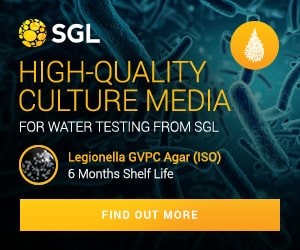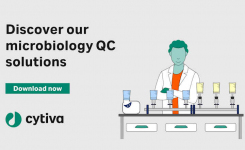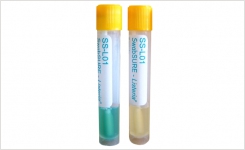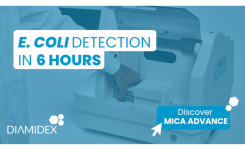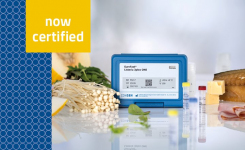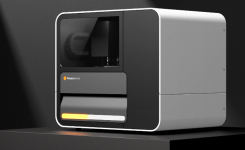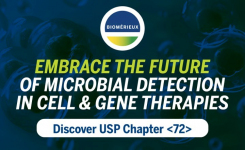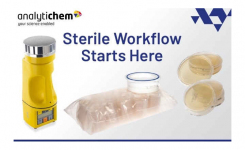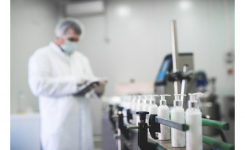PowerSoil® DNA Isolation Kit Extract Microbial DNA from All Soil Types
go back to news archivesThe PowerSoil® DNA Isolation Kit is the next generation soil DNA kit from Mo Bio, which uses a novel, patented Inhibitor Removal Technology® to extract microbial DNA from all soil types and other environmental samples. The isolated DNA has the highest level of purity allowing for more successful PCR and QPCR amplification of organisms from the sample. The kit is ideal for processing all environmental samples including difficult types containing a high humic acid content such as compost, sediment, and manure. PCR analysis has been performed to detect a variety of organisms including both Gram-positive and Gram-negative bacteria (e.g. Bacillus subtilis, Bacillus anthracis), fungi (e.g. yeasts, molds), algae, and actinomycetes (e.g. Streptomyces), and nematodes. The PowerSoil® DNA Isolation Kit distinguishes itself from other kits with a patented humic substance/brown color removal procedure that removes PCR inhibitors from even the most difficult soil types, promoting successful downstream PCR analysis. When choosing between the PowerSoil® DNA Isolation Kit and the UltraClean® Soil DNA Isolation Kit, use this kit for samples that are very high in humic content. Do not let the name fool you. Our customers use this kit successfully on diverse sample types such as food (cheese, milk, meat, fruit), water, insects and fecal samples in a variety of applications including biodefense, agriculture and zoology. These soil kits are used by the USEPA, USDA, FBI and CDC for soil analysis. |
NOTE: This item is from our 'historic' database and
may contain information which is not up to date.
Source : MO BIO Laboratories, Inc View Company Information
Posted on December 1, 2009
LATEST MICROBIOLOGY NEWS
MICROBIOLOGY EVENTS
-
Unmasking Endotoxins: A Sample Preparation Strategy to Overcome LER
15 Jul 2025 -
Next-Generation MAT vs. Traditional Pyrogen Tests: Faster, Ethical, and More Reliable
15 Jul 2025 -
LIMS Launchpad Series: Episode #1 - Strategic Planning
17 Jul 2025 -
IAFP 2025
27 Jul 2025 -
ADLM 2025
27 Jul 2025 -
Food Safety Culture Workshop
9 Sep 2025 -
Who are the "Real" Spoilers in Food?
11 Sep 2025 -
CPD accredited course: Level 3 HACCP & Food Safety
15 Sep 2025 -
Culture Eats HACCP for Breakfast (free)
On-demand Webinar -
A3P International Congress 2025
7 Oct 2025


